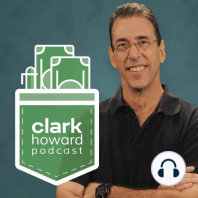73 min listen

2.10.20 Tesla stock massive fluctuations; No-good debit cards; Small business ransomware needs skyrocketing
2.10.20 Tesla stock massive fluctuations; No-good debit cards; Small business ransomware needs skyrocketing
ratings:
Length:
39 minutes
Released:
Feb 10, 2020
Format:
Podcast episode
Description
Some have lost a tremendous amount of their savings betting on Tesla. Know that betting on any one enterprise is risky – Apple, Amazon – stocks that become stories. Amazon went through a cycle that wiped some stock holders out. When you invest in an individual company, you’re creating risk. You could come out ahead, or lose a great deal or both. First build a base and create a strong core in funds wherein your money is well spread out. The U.S. represents 3% of the world’s population and 22% of the world’s economic activity and declining. Make sure your diversification includes international funds. Schwab teaches to build core investments first. Only then should you chance individual stocks with money you’re not depending on. Protect the future you’re building. Live on less than what you make, and protect the rest of that money going forward.
Clark was given a fake debit card from AT&T for dropping DirecTV. He was issued a partial refund on a debit card - receiving a check is not an option. Clark’s card kept being declined. He then registered the card and was texted the balance. The declines came because the balance was less than attempted purchases. It won’t allow another form of payment! Clark tried to get it to 0, and now it’s expired with .72 cents left on the table. So the company keeps that money – what’s known as breakage. This is why many companies use debits - knowing it won’t all be spent and they’ll get that much back. Clarkrageous that companies think this way, instead of doing right by their customers.
A type of data breach has become a life and death threat for many businesses. Many ransomware attacks don’t hit the news unless the company must publicly disclose they’ve been hacked. School boards and local governments must disclose. But we usually don’t hear about it from companies, who often have to pay to get their operations back. This crime is escalating, hitting companies of all sizes and can destroy a business. Have automatic backup of your data daily on a hard drive or cloud service. This can help restore your business activities. Have cyber insurance added to your business liability coverage. Backup data every 24 hours and have cyber insurance. The insurer will want to know what steps you’re already taking to protect your business. Take the time to make these things happen.
Learn more about your ad choices. Visit megaphone.fm/adchoices
Clark was given a fake debit card from AT&T for dropping DirecTV. He was issued a partial refund on a debit card - receiving a check is not an option. Clark’s card kept being declined. He then registered the card and was texted the balance. The declines came because the balance was less than attempted purchases. It won’t allow another form of payment! Clark tried to get it to 0, and now it’s expired with .72 cents left on the table. So the company keeps that money – what’s known as breakage. This is why many companies use debits - knowing it won’t all be spent and they’ll get that much back. Clarkrageous that companies think this way, instead of doing right by their customers.
A type of data breach has become a life and death threat for many businesses. Many ransomware attacks don’t hit the news unless the company must publicly disclose they’ve been hacked. School boards and local governments must disclose. But we usually don’t hear about it from companies, who often have to pay to get their operations back. This crime is escalating, hitting companies of all sizes and can destroy a business. Have automatic backup of your data daily on a hard drive or cloud service. This can help restore your business activities. Have cyber insurance added to your business liability coverage. Backup data every 24 hours and have cyber insurance. The insurer will want to know what steps you’re already taking to protect your business. Take the time to make these things happen.
Learn more about your ad choices. Visit megaphone.fm/adchoices
Released:
Feb 10, 2020
Format:
Podcast episode
Titles in the series (100)
Clark Howard: 03.08.17: Topics: Company helps businesses connect; sugary drinks for kids; elderly student loans; grocery store choice; small biz cash on hand by The Clark Howard Podcast